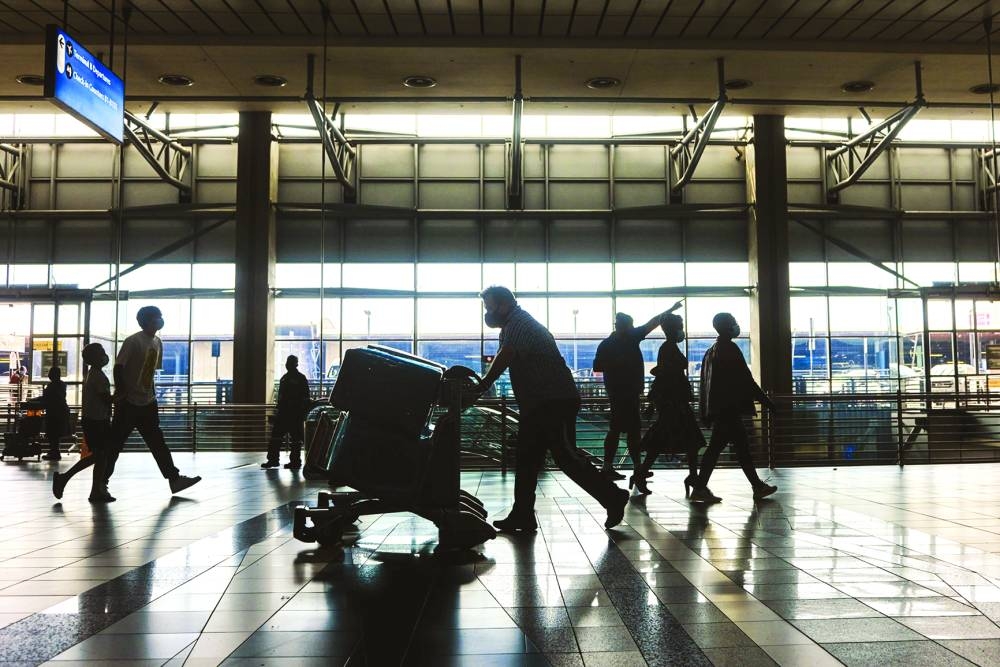Africa accounts for nearly 18% of the global population, but just 2.1% of air transport activities, cargo and passenger segments combined.
Clearly, the potential for aviation in Africa is huge. By closing the demand-supply gap, Africa can benefit from the much-needed connectivity, jobs and overall economic growth that aviation enables. Africa’s aviation industry holds significant potential for growth and development, given the continent’s rising population, economic prospects, increasing urbanisation and the need for improved connectivity.
Africa has one of the fastest growing populations in the world. A burgeoning middle class with rising disposable incomes is expected to increase demand for air travel.
Undoubtedly, many African countries are experiencing rapid economic growth, which boosts both business and leisure travel. This growth will potentially lead to increased investments in the continent’s aviation infrastructure.
Africa is home to numerous tourist attractions, including wildlife reserves, historical sites, and beautiful landscapes. Improved air connectivity, therefore, will enhance tourism, which is a vital sector for many African economies. However, the continent also faces several challenges that need to be addressed to fully realise these opportunities.
Many African countries lack adequate aviation infrastructure, including modern airports, efficient air traffic control systems, and maintenance facilities.
Safety and security are also critical concerns in the African aviation industry. Ensuring compliance with international safety standards and improving security measures are essential for gaining passenger trust. The development of air connectivity in Africa also requires certainty that markets will abide by global standards with respect to the repatriation of funds from sales activities. Airlines still struggle with the inability to repatriate blocked funds efficiently and in line with international agreements and treaty obligations in several African markets.
The amount of blocked funds in African countries as of June this year stood at $880mn, just over 52% of the $1.68bn in blocked funds globally. This is an improvement following Nigeria clearing 98% of the total funds blocked ($831mn). Recently IATA, the global trade body of airlines, announced that Africa’s airlines are expected to earn a collective net profit in 2024 for the second year in a row.
That is a welcome and hard-won result reflecting the sector’s resilience in its post-Covid recovery. The expected $100mn profit, however, translates into just 90 cents per passenger — well below the global average of $6.14.
“The demand to travel is there. To meet it, the African airline sector needs to overcome many challenges, not least of which are infrastructure deficiencies, high costs, onerous taxation, and the failure to broadly implement a continent-wide multilateral traffic rights regime,” Kamil Alawadhi, IATA’s regional vice-president (Africa and the Middle East) noted recently.
Tuesday’s announcement by Qatar Airways that it will pick up a 25% stake in Airlink, which is a privately-owned, premium, full-service regional airline based in South Africa, shows the huge potential for aviation in the African continent. The announcement is a continuation of the national airline’s ambition to further develop its operations across the African continent.
The investment in Airlink, which flies to more than 45 destinations in 15 African countries will enhance a code-sharing partnership between the two airlines.
The deal will bolster Qatar Airways’ Africa growth strategy and cement its role as a key driver to the continent’s economic success.
Speaking to Gulf Times on Tuesday, Qatar Airways Group Chief Executive Officer Badr Mohamed al-Meer said: “Qatar Airways cannot cover the whole of Africa as an airline. The idea of having this partnership with Airlink is basically to cover as many destinations as possible, where we are not currently operating.
“But we can now make sure we will be able to serve those passengers as well through Airlink. So, Airlink will be the airline that will be bringing all those passengers from that part of the continent where we don’t fly to.
Qatar Airways fresh equity in Airlink will enable it to “shift to a high gear and grow faster”, noted the South African airline Chief Executive Rodger Foster.
“This investment by Qatar Airways echoes Airlink’s faith in these markets and which we plan to add to our network in future. Crucially, Qatar Airways investments are set to bolster Airlink’s growth trajectory.
The fresh equity will enable us to shift to a high gear, enabling the airline to grow faster, to unlock opportunities that enhance our competitiveness across all areas of our business,” Foster added.
Business
Clear potential for Africa’s aviation industry growth; demand-supply gap needs to be closed
Beyond the Tarmac

A passenger wheels a luggage trolley inside the departures terminal at OR Tambo International Airport in
Johannesburg. Africa’s aviation industry holds significant potential for growth and development, given the continent’s rising population, economic prospects, increasing urbanisation and the need for improved connectivity.

